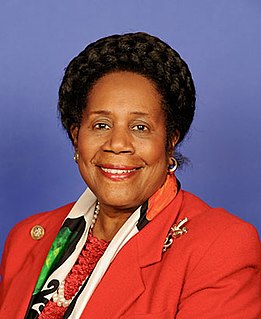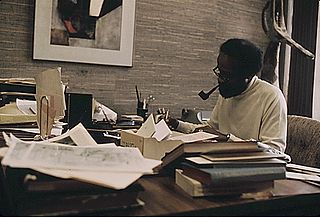A Quote by Noam Chomsky
The Fourteenth Amendment, after the civil war, in principle brought former slaves into the category of persons, theoretically. But if you actually look, almost all the cases brought up for personal rights under the Fourteenth Amendment were by corporations. Freed slaves couldn't do it. In fact they were pretty much driven back into something like slavery by a north - south compact, that allowed former slave states to criminalize black life, which made a criminal force that was basically used as a forced labor force, up until the 1930s.
Quote Topics
Actually
After
Allowed
Almost
Almost All
Amendment
Back
Basically
Black
Brought
Cases
Category
Civil
Civil War
Compact
Corporations
Driven
Fact
Force
Forced
Former
Fourteenth Amendment
Freed
In Fact
Labor
Labor Force
Life
Like
Look
Made
Much
North
Personal
Personal Rights
Persons
Pretty
Principle
Rights
Slave
Slavery
Something
South
States
Until
Up
Used
War
Were
Which
Related Quotes
I can't say with certainty that slavery would have ended more quickly and more completely if the South had been allowed to leave and escaped former slaves had been allowed to remain free, and the North and the rest of the world had been a positive influence on the South. However, it's certainly a possibility that it would have ended sooner if the southern slave owners had agreed to a system of compensated emancipation and freed the slaves without a war and without secession, as most nations that ended slavery did. That absolutely would have been preferable to the Civil War as it happened.
You take a look at the history of African Americans in the US. There's been about thirty years of relative freedom. There was a decade after the Civil War and before north/south compact essentially recriminalized black life. During the Second World War there was a need for free labor so there was a freeing up of the labor force. Blacks benefitted from it.
The Thirteenth Amendment to the Constitution of the United States was enacted in 1865 by martial law. The Fourteenth Amendment was enacted in 1868 by martial law. The Fifteenth Amendment was enacted in 1870 by martial law. Military occupation of the Southern states did not end until 1877, twelve years after the end of the Civil War.
The 14th Amendment was passed after the Civil War to apply to former slaves to ensure that they are treated like all other citizens. It never did have anything to do with gay marriage. It was never intended to have anything to do with gay marriage or animal marriage or any other kind of social contract. It was specific to slavery, and after the Civli War.
The First Amendment and Fourteenth Amendment rights in the United States Constitution were being violated in Albany again and again - freedom of speech, freedom of assembly, the equal protection of the laws - I could count at least 30 such violations. Yet the president, sworn to uphold the Constitution, and all the agencies of the United States government at his disposal, were nowhere to be seen.
Slavery wasn't something that grew up in the American South. and black people were not the first to be slaves in America. Before them there were 'indentured laborers,' taken out of jails in England and Scotland and so forth and brought to the colonies to work out their terms in the fields and then be set free.
There is no question that under the Equal Rights Amendment there will be debates at times, indecision at times, litigation at times. Has anyone proposed that we rescind the First Amendment on free speech because there is too much litigation over it? Has anyone suggested the same for the Fourteenth Amendment I don't suppose there has ever been a constitutional amendment with so much litigation?
When people denounced [former Iranian president Mahmoud] Ahmadinejad for rejecting and criminalizing homosexuality, it should be remembered that was true of the United States until very recently. Women's rights were unheard of. Civil rights proponents were horribly treated, not just in the South. It was awful there, but pretty bad here. Environmental issues did not exist. Opposition to aggression was virtually zero. In fact, so little, that to this day, even scholarship mentions the Vietnam War as beginning in 1965.
Who freed the slaves? To the extent that they were ever u2018freed,' they were freed by the Thirteenth Amendment, which was authored and pressured into existence not by Lincoln but by the great emancipators nobody knows, the abolitionists and congressional leaders who created the climate and generated the pressure that goaded, prodded, drove, forced Lincoln into glory by associating him with a policy that he adamantly opposed for at least fifty-four of his fifty-six years of his life.
Many Southern Plantation owners were working towards the day when they could convert their investment to more profitable industrial production as had been done in the North, and others felt that freemen who were paid wages would be more efficient than slaves who had no incentive to work. For the present, however, they were stuck with the system they inherited. They felt that a complete and sudden abolition of slavery with no transition period would destroy their economy and leave many of the former slaves to starve - all of which actually happened in due course.
All you have to do is go back to slavery - days, and there were two types of slaves, the house slave and the field slave. The house slave was the one who believed in the master, who had confidence in the master and usually was very friendly with the master. And usually he was also used by the master to try and keep the other slaves pacified.


































